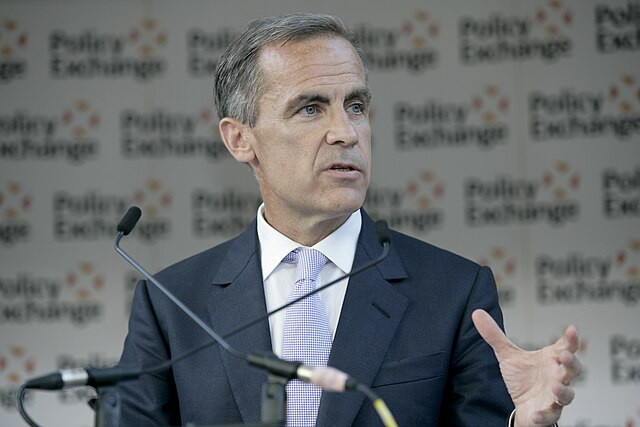Canadian Prime Minister Mark Carney has dissolved Parliament and called a snap federal election for April 28, citing escalating tensions with the United States over trade and sovereignty as driving factors behind the decision. The move comes less than two weeks after Carney was sworn in to replace former Prime Minister Justin Trudeau, positioning the Liberal Party leader to capitalize on recent momentum.
"We are facing the most significant crisis of our lifetimes because of President Trump's unjustified trade actions and his threats to our sovereignty," Carney told reporters Sunday in Ottawa, shortly after meeting Governor General Mary Simon to request the dissolution of Parliament.
Carney emphasized the need for a strong mandate to navigate the trade dispute and economic uncertainty, stating, "I'm asking Canadians for a strong, positive mandate to deal with President Trump and to build a new Canadian economy that works for everyone because I know we need change - big change, positive change."
Under Canada's parliamentary system, Carney was not obligated to call an election until October 20. However, political analysts suggest the early election is a strategic play to lock in support while the Liberal Party enjoys a surge in public approval.
Polls show the Liberals and the opposition Conservatives in a tight race. According to CBC News' Poll Tracker, the Liberals held 37.5% support nationally as of Sunday, while the Conservatives, led by Pierre Poilievre, were close behind at 37.1%. The New Democratic Party, headed by Jagmeet Singh, stood at 11.6%, and Yves-Francois Blanchet's Bloc Quebecois trailed at 6.4%.
Carney, a former central banker with high favorability ratings, has positioned himself as the candidate best equipped to counter the tariffs and annexation rhetoric coming from Washington. An Ipsos poll released Thursday showed Canadians regard Carney as the leader most capable of managing relations with the U.S.
Tensions between Ottawa and Washington have escalated since U.S. President Donald Trump announced new tariffs on Canadian imports, including a 25% duty on steel and aluminum. The Canadian government responded with $21 billion in retaliatory tariffs earlier this month, targeting a range of American goods. Trump has further inflamed nationalist sentiment in Canada by suggesting the country should become the "51st state" of the U.S., an idea Carney has dismissed as "crazy."
"We will never, ever, in any way, shape or form, be part of the United States," Carney stated during his swearing-in earlier this month.
Political scientist Lisa Young of the University of Calgary told Al Jazeera that Carney is aiming to secure his mandate while "the shock of the Trump administration is still front of mind for Canadians." Young added, "[Carney] wants to call the election while he still has this kind of momentum as a new leader."
The Conservatives, meanwhile, have struggled to capitalize on the political landscape. Poilievre, known for his confrontational style, has attacked the Liberals' decade-long record on housing affordability and economic management but has yet to articulate a clear strategy for dealing with the Trump administration.
"I know a lot of people are worried, angry and anxious - and with good reason - as a result of the [US] president's unacceptable threats against our country," Poilievre said at a campaign event Sunday. "I share your anger and I share the worry for our future. But I also draw great resolve in knowing that we can transform the anxiety and anger into action. I will protect Canada and I will always put our country first."




